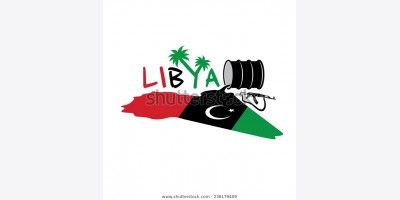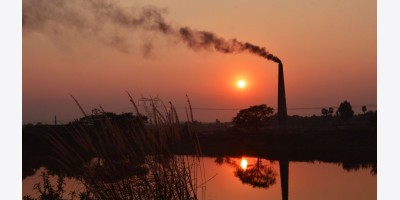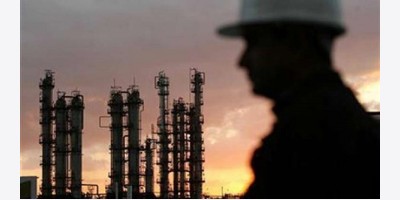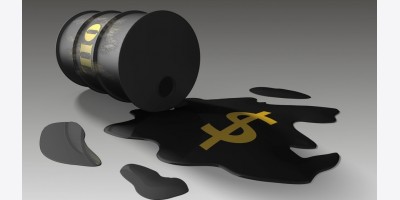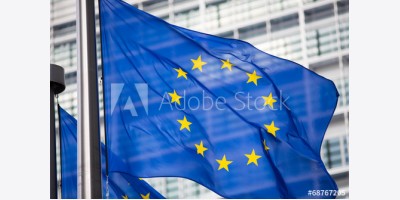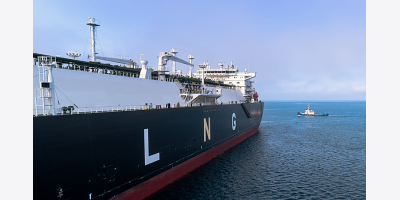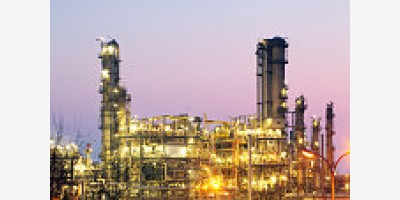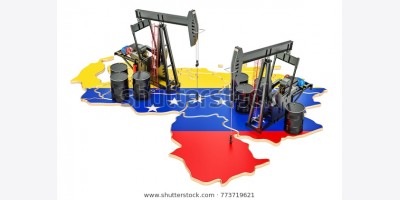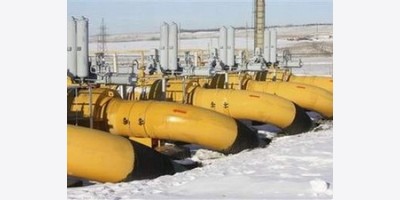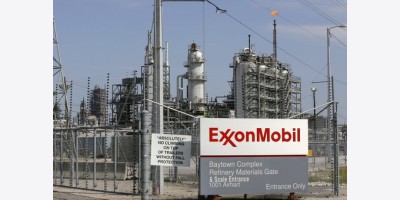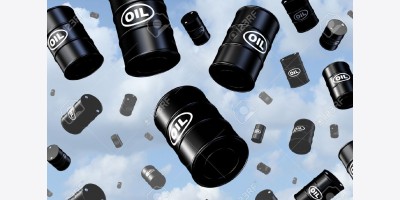Fewer oil companies are courting deals with Iran ahead of a comprehensive nuclear pact that would open the country up to business, a senior Obama administration official said Tuesday, attributing the decline to US warnings to companies that sanctions remain very much in force.
“We are not seeing as active a flow of trade delegation going to Iran as in the initial days of the Joint Plan of Action,” said David Cohen, the US Treasury undersecretary for terrorism and financial intelligence, at a hearing of the Senate Foreign Relations Committee. “We had a number of outreach efforts to governments to make clear that we didn’t think this was a good time to be engaging Iran.”
Late last year, after the first interim agreement on Iran’s nuclear agreement was reached between Iran and western powers, Iran held a series of meetings with senior officials from several international oil companies seeking investment in its upstream sector once sanctions are eventually lifted.
Those meetings drew criticism from US lawmakers opposed to the agreement, saying it appeared as if Iran was now reopened for business. But Cohen said the companies heard the US’ message loud and clear. “I don’t think anyone was confused that we were going to sit back and allow sanctions violations to occur,” he said.
The interim agreement, in which the P5+1 — the US, UK, Russia, France, China and Germany — agreed to relax some sanctions on Iran in return for a partial freeze of Iran’s nuclear program, was set to expire earlier this month but was recently extended until November 24. Senators at the hearing noted that Iran’s crude exports appear to have risen above the 1 million b/d that the US had targeted.
A Platts analysis of official import figures and shipping data found that China, India, Japan, South Korea, Turkey and Taiwan took about 1.47 million b/d of Iranian crude in February, 1.26 million b/d in March, 1.29 million b/d in April and 1.46 million b/d in May. Those six countries, under waivers issued by the US, have been able to continue to buy Iranian oil without incurring US financial sanctions.
Wendy Sherman, the State Department undersecretary for political affairs, noted that those figures include condensate, which the US does not count toward its 1million b/d target for Iranian exports. Without including condensate, Iran has been exporting about 1 million to 1.1 million b/d, Sherman testified.
The EU has agreed to target Russia’s oil sector as part of new economic sanctions over Russia’s involvement in the Ukraine crisis, an EU diplomatic source said Tuesday. “The sanctions target equipment for certain oil projects — deep water, Arctic and shale oil,” the source said.
The sanctions format would be a licensing regime whereby EU companies would have to obtain permission to export the equipment covered to Russia, the source said. This is in line with the European Commission’s draft recommendations on potential sanctions prepared last week to help the EU decide what to do.
The formal legal text is set to be published late Thursday in the EU’s Official Journal and would take effect on Friday, the source said. There would be a formal review after three months, the source said, adding that EU sanctions are constantly under review and can be changed at any time.said Tuesday.
Dudley said BP is working closely with other operators in Iraq regarding the security situation. BP is continuing “quite detailed negotiations” with the Iraqi authorities on expansion objectives at the Rumaila oil field, where production is now averaging 1.4 million b/d, he said. “Our teams are working [in Iraq] uninterrupted,” Dudley said. “We moved some people out in the beginning, but people are now back working,” he said.
BP in mid-June said it had removed “non-essential” staff from its Rumaila field operations near Basra in southern Iraq, though it stressed that the authorities there remained in control of the situation.
Iraq’s major oil fields are located in the south: Eni operates the Zubair field, Shell operates Majnoon and Lukoil is operator at West Qurna 2. Although fighting continues in Iraq, the insurgency has not made headway beyond the already occupied parts of the country.
“We don’t see signs of heightened issues down in Basra — it’s a long, long way from the ISIS territory. It’s firmly in the Shia territory,” Dudley said. “We’re in cooperation and coordination with the other operators there which include Eni, Shell and Lukoil,” he said. “Cargoes are being moved out, equipment is coming in, it hasn’t really impacted how we’re doing things. We have staff going in and out of Baghdad dealing with ministries.”
Production at Rumaila has at various times been subject to forced curtailments by the oil ministry due to a lack of southern infrastructure. The field is currently contracted to have production capacity of 2.85 million b/d by 2018, but that is likely be adjusted, in part to align with domestic and international market demands. BP operates Rumaila and has “been in discussions with [the Iraqis] for an enhanced field development plan for some time,” Dudley said. “That would lead to production out in time that we think will be over 2 million b/d. That’s a discussion that’s been going on, quite detailed negotiations continue right now,” he said.
By James G. Neuger and Jonathan Stearns Jul 30, 2014 1:37 AM GMT+0700
July 29 (Bloomberg) -- Further sanctions under consideration by the European Union may push Russia into recession, according to Tim Ash, chief economist at Standard Bank Group Ltd. in London. He was speaking with Mark Barton, Ryan Chilcote and Caroline Hyde on Bloomberg Television's "Countdown." (Source: Bloomberg)
The European Union curbed Russia’s access to bank financing and advanced technology in its widest-ranging sanctions yet over President Vladimir Putin’s backing of the rebels in eastern Ukraine.
EU governments agreed today in Brussels to bar state-owned banks from selling shares or bonds in Europe and restricted the export of equipment to modernize the oil industry, a key prop for Russia’s economy, the EU said in a statement. New contracts to sell arms to Russia and the export of machinery, electronics and other civilian products with military uses will also be banned.
“The political implications of the escalation in tensions are likely to cast a further chill over relations between Russia and the West,” Citigroup Inc. (C) analysts including Eric Lee and Tina Fordham said in a note to clients before the EU decision. “Economic costs are starting to bite, but it could be a while before the economic consequences bear domestic political costs for Russia.”
President Barack Obama will speak on the situation in Ukraine at 2:50 p.m. in Washington, the White House said. The U.S. is also preparing to announce tougher sanctions on Russia after months of separatist unrest in Ukraine’s easternmost Donetsk and Luhansk regions and the July 17 Malaysian Air jet crash¸ which U.S. officials have said was probably caused by a missile fired by pro-Russian rebels. At least 10 soldiers and 28 civilians died in violence over the past 24 hours.
‘Powerful Signal’
“The package of new restrictive measures agreed today by the European Union constitutes a powerful signal to the leaders of the Russian Federation: destabilizing Ukraine, or any other eastern European neighboring state, will bring heavy costs to its economy,” EU President Herman Von Rompuy said in a statement. “Russia will find itself increasingly isolated by its own actions.”
Subject to Sanction
The sanctions will initially last for 12 months, though they’ll be reviewed by the end of October, according to an EU official speaking on condition of anonymity. It would need unanimity from all 28 members of the bloc to scrap the measures before the 12 months are up.
The new EU package will “track pretty closely” with sanctions already imposed by the U.S., and the Obama administration plans to unveil additional penalties as soon as today, Obama’s spokesman, Josh Earnest, said in Washington. He declined to provide any details of the proposed U.S. measures.
Kerry’s View
“The Russians and their so-called volunteers are continuing to ship arms and funds and personnel across the border,” U.S. Secretary of State John Kerry said in Washington after meeting Ukrainian Foreign Minister Pavlo Klimkin. “While the Russians have said they want to de-escalate the conflict, their actions have not shown a shred of evidence that they really have the legitimate desire to end the violence.”
Due to the reliance of many European countries on Russian oil and natural gas, the EU stopped short of the full-scale commercial warfare that could damage its own economy, which is still shaking off the euro debt crisis. The calibrated blockade buried the notion of Russia, which sends almost half of its exports to the EU, as a “strategic partner” for the bloc and risked retaliation by Putin against European and U.S. companies active in the $2 trillion economy.
Sentiment toward Russian assets has soured this year as Putin’s incursions into Ukraine sparked a slowly tightening wave of sanctions from the U.S. and Europe. The Micex Index (INDEXCF) has dropped 5 percent since Russia’s March incursion into Crimea and the central bank on July 25 unexpectedly raised interest rates for the third time this year as the crisis undercut the ruble.
Holdings Reassessed
Last week, Norway’s $890 billion sovereign wealth fund, the world’s biggest, said it’s reassessing its holdings in Russia. Today’s EU sanctions decision came after Russia’s stock market closed, though the news sparked a drop in U.S. stocks. The Standard & Poor’s 500 Index (SPX) was 0.1 percent lower at 2:24 p.m. in New York.
The EU measures, endorsed today by representatives of national leaders, will take effect when the legal texts are published on July 31.
Constrained by the need for consensus among the 28 governments, the EU had lagged behind the U.S. -- with fewer business links to its former Cold War enemy -- in upping the pressure on Putin. Rival interests among Europe’s leading powers prevented the EU from going further today, with France resisting a retroactive embargo that would scrap the sale of two warships to Russia.
EU Blacklist
Until now, the EU had blacklisted 87 people and 20 companies and groups accused of engineering Russia’s annexation of Crimea in March and the subsequent infiltration of eastern Ukraine. The bloc decided yesterday to extend the blacklist to cover eight more people, including four Putin confidants, and three organizations, the officials said. Those names will be released late tomorrow.
EU attitudes were hardened by the Malaysian Air disaster, which killed all 298 people aboard, the bulk from the Netherlands. A key U.S. and EU demand is unfettered access to the rebel-controlled crash site. Dutch forensic workers failed in an attempt to reach the location today.
In eastern Ukraine today, residential areas of the city of Donetsk, once home to 1 million people, came under artillery fire, killing two people, according to the local council. Twenty-one civilians were killed overnight and today in the city of Horlivka in the Donetsk region, with five dying overnight in the neighboring Luhansk region, according to local authorities.
Capital Flight
For the first time, the EU sought to hobble broad swathes of Russian industry, with the goal of accelerating the flight of capital from the country. Russian economic growth will slow to 0.2 percent in 2014 from 1.3 percent last year, the International Monetary Fund said last week.
“Russia needs the opposite, Russia needs internationalization, globalization to make Russia a better place to do business,” Tim Ash, an emerging-market economist at Standard Bank Plc in London, told Bloomberg Television earlier today. “In the short term, the impact of sanctions could be to push Russia into recession.”
Taking aim at the Russian financial system, the EU prohibited state-owned banks from selling securities with more than 90 days maturity to European investors. The result will be “sharply increased costs of issuance,” the European Commission predicted in a background paper last week.
Loan Slump
Russian companies have drawn increasingly upon state-controlled lenders OAO Sberbank and VTB Group since the Ukraine crisis deterred outside banks. Dollar loans from international banks slumped to $7.9 billion in the first half of 2014 from $25 billion a year earlier.
Financial curbs “could be very important for Russia,” Yannick Naud, who helps manage $190 million at Sturgeon Capital Ltd. in London, told Bloomberg Television earlier today. “Both the banks as well as companies are relying a lot on foreign capital.”
Seeking to starve Russia’s oil industry of capital for expansion and modernization, the EU restricted the export of technology for deep-sea drilling, shale-oil production and Arctic exploration. Natural gas projects weren’t affected. The EU also barred the export of “dual-use” technologies for military purposes.
Russian Energy Ministry spokeswoman Olga Golant declined to comment by phone.
Hardened Attitudes
Curbs on the sale of high-tech machinery reflected a stiffening of attitudes in Germany, the bloc’s largest economy. Germany supplies 30 percent of EU exports to Russia and buys more than a third of its oil and gas from there, leading industry to fear the cost of an embargo on Russia.
German public opinion shifted after the shooting-down of the plane over Ukraine, with 52 percent now in favor of tougher measures toward Russia, up from 25 percent in March, according to a TNS-Infratest poll commissioned by Spiegel magazine.
Today’s EU move was “inevitable,” and “additional steps are possible,” German Chancellor Angela Merkel said in a statement. “It’s now up to the Russian leadership to decide if it wants to follow the path of de-escalation and cooperation.”
The EU arms curbs won’t stop France from selling two Mistral helicopter carrier warships to Russia, under a contract signed in 2011. The newspaper Le Monde has valued the contract at 1.2 billion euros ($1.6 billion). While Russian sailors are already in France to take delivery of the first ship, French President Francois Hollande last week held out the prospect of canceling the second sale.
To contact the reporters on this story: James G. Neuger in Brussels at jneuger@bloomberg.net; Jonathan Stearns in Brussels at jstearns2@bloomberg.net
To contact the editors responsible for this story: Ben Sills at bsills@bloomberg.net Eddie Buckle, Paul Abelsky
By Laurel Calkins Jul 30, 2014 4:38 AM GMT+0700
Iraq persuaded a U.S. judge to order the seizure of $100 million of oil inside a tanker anchored off Galveston, Texas, that it claims was illegally pumped from wells in Kurdistan.
Kurdish officials “misappropriated” more than 1 million barrels of oil from northern Iraq and exported them through a Turkish pipeline, according to a complaint filed yesterday in Houston federal court. U.S. Magistrate Judge Nancy Johnson in Galveston authorized U.S. marshals to seize the cargo and have it moved ashore for safekeeping until the dispute is resolved.
The problem, the judge said at an emergency hearing today, is that the vessel is outside U.S. territorial waters. She said if the ship crosses that boundary, her order must be enforced. But until that happens, it’s out of her hands.
“Seems to me this is not a matter for U.S. courts to tell the government of Iraq who owns what,” Johnson said. “This just seems way outside our jurisdiction.”
The U.S. officially recognizes Kurdistan as part of Iraq, although the Kurdish people have jockeyed with the Baghdad-based national government for autonomy for more than a decade. Oil revenues from the northern oil fields could fuel Kurdistan’s fight for independence.
“Either they’ll bring the oil into port, where we’ll take possession of it, or they’ll sail off somewhere else,” Phillip Dye Jr., a Houston-based attorney for the Iraqi Oil Ministry, said in a telephone interview today. His clients don’t know who bought the cargo, and he said he had no reports that any oil has been removed from the tanker yet. In a separate court filing, AET Inc., a lightering services firm, identified Talmay Trading Inc. as the company that hired it to transfer the crude.
The Iraqi government warned Kurdish officials to stop the illegal exporting through Turkey, which began in December, according to the complaint. The crude shipment left Ceyhan, Turkey, on June 23, and has “changed destinations multiple times” while at sea, according to the filing. The ship is anchored about 60 miles southeast of Galveston, according to data compiled by Bloomberg, outside U.S. territorial waters.
U.S. Refinery
If a U.S. refinery accepts shipment of the crude, it will send a signal to the rest of the world that it is acceptable to do business with the Kurdish government, said Carl Larry, president of Oil Outlooks & Opinions LLC.
“It opens the door to some kind of breakup in that region where you could have a separate Kurdistan and Iraq,” Larry said in a telephone interview. “It’s definitely going to create that separation, and more people are going to recognize that and respect it.”
Bernadette Meehan, a spokeswoman for the National Security Council, said in an e-mail that “U.S. policy on this issue has been clear and consistent. Iraq’s energy resources belong to all of the Iraqi people.”
Arrest Warrant
The Iraqi Oil Ministry asked U.S. marshals to oversee lightering operations to remove crude from the tanker and store it onshore at Iraq’s expense. The proposed arrest warrant filed with the complaint didn’t ask to seize the United Kalavrvta, the Marshall Islands-flagged tanker, which is too large to enter the Houston Ship Channel and offload cargo directly.
The tanker was cleared by the U.S. Coast Guard to proceed with offloading, the agency said.
AET, a Kuala Lumpur-based company, and Dallas-based AET Offshore Services Inc. yesterday filed a request in Houston federal court for a declaratory judgment on its rights in the matter.
Talmay Trading
AET said it entered into a lightering contract -- transferring cargo between ships -- with Talmay Trading, a British Virgin Islands-based company. AET said it has yet to receive instructions for the transfer of the crude oil aboard the United Kalavrvta. While the ship was underway, AET said it had been contacted by lawyers for Iraq claiming the oil was its property. A spokesperson for Talmay couldn’t be immediately reached for comment.
“As the Republic of Iraq has put AET on notice of its claim to title and/or possession of the crude at issue, AET requests that this court determine the validity of that claim,” AET said in the filing.
At today’s hearing, AET lawyer Andy Durham told the judge the company is “between a rock and a hard place.”
“We are not permitted to take possession of the cargo which, according to the Republic of Iraq, is stolen property,” he said. Harold Watson, a lawyer for the Kurds who shipped the oil, declined to comment.
Oil producers are actively pursuing resources in coordination with the Kurdistan Regional Government, which estimates the northern territory holds 45 billion barrels of oil reserves. The Kurdish government expanded its control over the country’s resources in early June, when Kurdish Peshmerga armed forces took control of northern Iraq’s key oil hub, Kirkuk, after militants routed the Baghdad government’s army.
The primary case is Ministry of Oil of the Republic of Iraq v. 1,032,212 Barrels of Crude Oil Aboard the United Kalavrvta and the Ministry of Natural Resources of the Kurdistan Regional Governate of Iraq, 3:14-249, U.S. District Court, Southern District of Texas (Galveston).
(An earlier version of the story was corrected because the estimated oil reserves were listed as trillion instead of billion.)
To contact the reporter on this story: Laurel Calkins in Houston at lcalkins@bloomberg.net
To contact the editors responsible for this story: David E. Rovella at drovella@bloomberg.net Fred Strasser
Third Oil Tank on Fire After Shelling Near Libya Airport
By Nayla Razzouk and Saleh Sarrar Jul 30, 2014 12:07 AM GMT+0700
Clashes between rival militias near Libya’s national airport set a third fuel storage tank ablaze as worsening violence in the country prompted the U.S and Germany to evacuate their nationals.
A call by the Libyan government for a temporary truce to tackle the fire was ignored, with militias continuing to shell the area where the fire has raged all week. The government has requested international assistance, and said that Italy had offered to help, a claim subsequently denied by the Italian foreign ministry. “However, Italy continues to evaluate all of the options to furnish aid to Libya,” the foreign ministry said in statement today.
The two-week long battle outside the airport has damaged the terminal, control tower and planes parked at the facility as a weakened central government battles armed groups including Islamists and separatist militias.
Libya, which holds Africa’s largest crude reserves, has been engulfed in violence and political power struggles since the ouster of Muammar Qaddafi in 2011. The nation’s oil output has fallen since then, making the nation the smallest producer in the Organization of Petroleum Exporting Countries.
Attackers fired at a U.K. diplomatic convoy in Libya on July 27, a day after the U.S. State Department evacuated its embassy staff. France, Germany, the U.K., the Netherlands and Thailand have also announced evacuation plans or travel warnings. Egypt has asked Libyan authorities to investigate the killing of a number of its citizens in Tripoli on July 26, according to an Egyptian Foreign Ministry statement.
To contact the reporters on this story: Nayla Razzouk in Dubai at nrazzouk2@bloomberg.net; Saleh Sarrar in Dubai at ssarar@bloomberg.net
To contact the editors responsible for this story: Alaric Nightingale at anightingal1@bloomberg.net Jack Fairweather, Ben Holland
Asia to Get Most 2014 Middle East Fuel, Ship Hirings Show
By Rupert Rowling Jul 30, 2014 6:00 AM GMT+0700
Persian Gulf oil refineries, going through the biggest expansion in decades, are about to ship the largest amount of fuels such as gasoline to Asia in eight months, lists of shipping charters show.
Traders hired ships in the spot market to load 3.91 million metric tons of refined petroleum in the four weeks to Aug. 10, according to vessel booking data compiled by Bloomberg yesterday. The tally, the highest since December, doesn’t capture shipments organized under long-term charters and shipbrokers don’t report all transactions.
Middle East nations led by Saudi Arabia, the biggest crude exporter, are increasing their ability to refine the oil and profit from higher prices that processed fuels fetch. The region will add 815,000 barrels a day of capacity by the end of this year, according to estimates by Vienna-based analysts JBC Energy GmbH. That’s about as much as the industry’s largest product tankers normally transport.
“We see this increased flow of cargoes to Asia as a structural change that is likely to carry on for a few years,” Michael Dei-Michei, energy-market analyst at JBC Energy, said by phone on July 28. “Refinery intake growth at countries such as Saudi Arabia, Kuwait and Oman has been pretty impressive so far this year.”
Ship-charters can be canceled in private or vessels can sail to destinations other than those reported. The data excluded any ship that was booked twice within a 45-day period, about how long a ship sailing to Japan and back from Saudi Arabia would take.
Asia’s importance as a source of demand is rising because Russia is increasing fuel shipments to Europe and surging oil production in the U.S. has curbed the nation’s dependence on foreign energy. China’s gasoline demand rose 16 percent in June and consumption of middle distillates such as diesel advanced 6.9 percent, according to HSBC Holdings Plc.
“We do think Chinese demand is improving,” said Abhishek Deshpande, a London-based oil markets analyst at Natixis SA, an investment bank. “Another factor for the increased flows from the Middle East could be that their refiners are undercutting Asian ones by selling at attractive prices.”
To contact the reporter on this story: Rupert Rowling in London at rrowling@bloomberg.net
To contact the editors responsible for this story: Alaric Nightingale at anightingal1@bloomberg.net Dan Weeks
U.S., EU Ready New Russsian Sanctions as Fighting Rages
By Margaret Talev, Gregory Viscusi and Brian Wingfield Jul 29, 2014 8:16 PM GMT+0700
The U.S. and the European Union are nearing tougher sanctions against Russia for its role in the fighting that continues to rage in eastern Ukraine.
The sanctions target “key” Russian industries -- energy, defense and finance -- and are being imposed in the face of Vladimir Putin “doubling down” in support of rebels battling Ukrainian troops, U.S. Deputy National Security Adviser Tony Blinken said yesterday. The EU is preparing to announce a list of the Russian president’s “cronies” subject to asset freezes and travel bans after reaching an agreement yesterday. At least 10 soldiers and 22 civilians died in violence in the past day.
“Putin continues to isolate himself in the court of world opinion,” retired U.S. Navy Admiral James Stavridis, ex-supreme allied commander of NATO, said today on Bloomberg Television’s “Surveillance.” The sanctions “look stronger than they did three-four weeks ago. They’re moving in the right direction.”
The U.S. and its allies are seeking to squeeze Putin amid months of pro-Russian unrest in Ukraine’s easternmost Donetsk and Luhansk regions and this month’s Malaysian jet disaster. Up to now, EU governments that depend on Russia for trade and about one-third of their energy supplies haven’t gone as far as the U.S. in hitting Russia’s $2 trillion economy.
Conference Call
The sanctions were agreed on yesterday during a video and phone conference with President Barack Obama, German Chancellor Angela Merkel, French President Francois Hollande, U.K. Prime Minister David Cameron and Italian Premier Matteo Renzi.
Russia hasn’t effectively pressured the separatists to negotiate and hasn’t taken the “concrete steps” asked of it to control Ukraine’s border, Hollande said in a statement.
The names of Europe’s latest targets, approved by diplomats from the 28-nation bloc at a meeting in Brussels, will be published in the EU’s Official Journal “late” tomorrow, an official said on condition of anonymity.
Subject to Sanction
While sanctions already in place are squeezing Russia’s economy, they haven’t forced a political change, according to Blinken, who said the nation has extended support for the rebels in eastern Ukraine since the July 17 downing of Flight MH17. The U.S. also found Russia violated a Cold War-era arms treaty on making, possessing or testing a type of cruise-missile, an Obama administration official said.
The International Monetary Fund cut its forecast for Russia’s 2014 economic growth last week to 0.2 percent from 1.3 percent, citing capital flight fueled by the Ukraine conflict.
Worst Performer
Russia is this year’s worst performer among the world’s 20 biggest stock markets as the dollar-denominated RTS Index dropped 15.9 percent. The benchmark Micex Index (INDEXCF) rose 1 percent today in Moscow, its first advance in three sessions. Russia canceled its second ruble bond auction in a row today, with the Finance Ministry citing “unfavorable market conditions.”
In the city of Donetsk, home to one million people, residential areas including parks faced artillery fire today, according to the local council. Seventeen civilians were killed amid shelling in the Donetsk region city of Horlivka, while five died and eight were wounded overnight in the neighboring Luhansk region, the Luhansk City Council said on its website.
Russia is backing the insurgents with artillery fire during fighting near the two nations’ border, Ukrainian Defense Ministry spokesman Andriy Lysenko said today in televised remarks. The ministry says Russia is massing troops on its border, supplying the separatists with weapons and other equipment and firing from within its territory.
Crash Site
Russia denies involvement in Ukraine’s crisis, in which the pro-Kremlin insurgents have been driven out of their strongholds in recent weeks, and repeated calls yesterday for a cease-fire.
A key U.S. and EU demand is unfettered access to the Malaysian plane crash site. The jet, which was flying from Amsterdam to Kuala Lumpur, was probably downed by a missile fired by the pro-Russian rebels, U.S. officials have said. All 298 people on board died.
The Organization for Security and Cooperation in Europe said today via Twitter that “intensive planning” is underway to access the area, which Ukraine’s Defense Ministry says is still controlled by armed insurgents. A team of Dutch forensic workers was unable to reach the site today because of fighting along the route, the Dutch ANP news service reported, citing a spokeswoman for Pieter-Jaap Aalbersberg, who heads the mission.
The lack of access paves the way for more sanctions. The U.S. will probably deny Russia access to oil-production equipment for use in the Arctic and deep waters, and add more banks and energy companies to a list of those banned from U.S. financing, New York-based Eurasia Group said in a report.
Robert Kahn, a former Treasury official who’s now a senior fellow for international economics at the Council on Foreign Relations in Washington, said the Obama administration may match the EU’s sanctions list and prohibit additional financial activities such as foreign exchange or commodities trading with certain Russian companies.
“You will see a significant and long-term decline in the Russian economy from these sanctions,” Kahn said by phone.
To contact the reporters on this story: Margaret Talev in Washington at mtalev@bloomberg.net; Gregory Viscusi in Paris at gviscusi@bloomberg.net; Brian Wingfield in Washington at bwingfield3@bloomberg.net
To contact the editors responsible for this story: Steven Komarow at skomarow1@bloomberg.net Andrew Langley, Paul Abelsky
BP Warns More Sanctions May Hurt Business as Profit Rises
By Nidaa Bakhsh Jul 30, 2014 12:13 AM GMT+0700
BP Plc (BP/), the U.K. oil company with the single-biggest foreign investment in Russia, warned that more sanctions against the country could hurt its business.
BP, with a 20 percent stake in OAO Rosneft, stands to lose the most from further sanctions in response to Russia’s annexation of Crimea. The European Union and the U.S. are acting to intensify punitive measures aimed at key sectors of the economy -- finance, defense and energy.
“Any future erosion of our relationship with Rosneft, or the impact of further economic sanctions, could adversely impact our business and strategic objectives in Russia, the level of our income, production and reserves, our investment in Rosneft and our reputation,” BP said in an earnings statement.
BP reported a 34 percent increase in second-quarter profit, beating analyst estimates, including $1 billion underlying net income from Rosneft. That compares with $218 million from the Russian company a year earlier. BP received a $690 million dividend from Rosneft last week and doesn’t expect this to be at risk next year. Its stake is worth $15 billion.
“To date, these sanctions have had no material adverse impact on BP or Ruhr Oel GmbH,” a joint refining venture between BP and Rosneft, it said. “However, BP will continue to keep this under review.”
EU governments agreed today in Brussels to bar Russian state-owned banks from selling shares or bonds in Europe and restricted the export of equipment to modernize the oil industry, a key prop for Russia’s economy, two EU officials told reporters.
Profit Rises
A Dutch court ruled yesterday in favor of former Yukos Oil Co. officials, ordering Russia to pay $50 billion for seizing what was once the country’s largest oil producer. The decision risks dragging Rosneft and natural gas exporter OAO Gazprom into extended legal wrangling. The state-run companies may be targeted because they were beneficiaries of expropriated Yukos assets.
“We are monitoring events in Russia,” Chief Executive Officer Bob Dudley, who was re-elected to the Rosneft board in June, said at a media briefing in London. “Sanctions are a matter for governments to resolve through dialog and diplomacy.”
BP shares fell 2.5 percent to 484.25 pence at the close in London trading, the biggest drop in a year. That’s the lowest price since April 17.
New Projects
Earnings adjusted for one-time items and inventory changes rose to $3.6 billion from $2.7 billion a year earlier, the London-based company said in the statement. That beat the $3.4 billion average estimate of 13 analysts in a Bloomberg News survey. The quarterly dividend was unchanged from the previous three months at 9.75 cents a share.
While total energy production declined because of disposals, the company brought online projects with better returns, it said. U.S. output rose 28 percent in the quarter from a year earlier, boosted by new assets in the Gulf of Mexico.
“We are continuing to ramp up the major new projects that drive delivery of cash flow and are also now seeing benefits from our focus on operating with greater reliability and efficiency,” Dudley said in a statement. “This was another successful quarter, delivering both operational progress and robust cash flow.”
Five new projects started production this year, including three in deepwater in the Gulf of Mexico, and the CLOV project in Angola, which produced first oil in June. Two more projects are expected to start in 2014.
Lower Output
The end of BP’s Abu Dhabi concession in January together with divestments meant overall production was 6 percent lower at 2.1 million barrels of oil and gas a day. Underlying output, which strips out these factors, was 3 percent higher.
Rising production from higher-margin fields and increased processing from the newly modernized Whiting refinery in Indiana contributed to operating cash flow of $7.9 billion, with the total for the first half at $16.1 billion, BP said.
“These were a strong set of results,” said Anish Kapadia, an analyst at Tudor Pickering Holt & Co. in London. “It was particularly encouraging to see increased oil production from the U.S. as well as a good contribution from Rosneft, putting them on track to meet the $30 billion to $31 billion target for cash flow for the year.”Alaska Maintenance
BP said production is expected to be lower in the third quarter compared with the previous three months because of maintenance in Alaska and the Gulf. The explorer has the greatest scope among the oil majors to rein in operating costs, with potential savings of $1.4 billion a year, according to analysts at Sanford C. Bernstein & Co.
Norway’s Statoil ASA last week reported a drop in profit on lower production because of maintenance and asset sales, while Spain’s Repsol SA said adjusted net income was 2.7 percent lower than a year earlier as unrest in North Africa curtailed output.
Total SA, Europe’s second-largest oil company, reports second-quarter earnings tomorrow, while Royal Dutch Shell Plc, Europe’s largest oil company, will report on July 31.
BP raised cost estimates for the 2010 Gulf oil spill to $43 billion from $42.7 billion for legal provisions.
To contact the reporter on this story: Nidaa Bakhsh in London at nbakhsh@bloomberg.net
To contact the editors responsible for this story: Will Kennedy at wkennedy3@bloomberg.net Tony Barrett, Carlos Caminada
Energy Companies Gear Up for More Sanctions Pain in Russia
By David Wethe and Joe Carroll Jul 30, 2014 5:07 AM GMT+0700
Some of the world’s biggest energy companies could see billions in revenue disappear amid new sanctions that shut them off from the Russian energy frontier.
As violence escalates in eastern Ukraine between government and separatist forces, the European Union today sought to punish Russia for its involvement by restricting exports of deep-sea drilling and shale-fracturing technologies. The U.S. followed suit, with President Barack Obama announcing a block on specific goods and technologies exported to the Russian energy sector.
“Because we’re closely coordinating our actions with Europe, the sanctions we’re announcing today will have an even bigger bite,” Obama told reporters today at the White House. “Russia’s energy, financial and defense sectors are feeling the pain.”
The new restrictions, which Obama described as the region’s most significant to date, “will make it more difficult for Russia to develop its oil resources over the long term,” he said.
Russia relies on companies including Exxon Mobil Corp. (XOM), BP Plc (BP/), Halliburton Co. (HAL) and Schlumberger Ltd. (SLB) for the latest technology and expertise it needs to develop an estimated $7.58 trillion in oil and natural gas resources that sprawl across nine time zones. Exploration and production companies like Exxon were expected to spend $51.7 billion in Russia this year, according to estimates from Barclays Capital Inc. -- much of which would go to service and equipment companies such as Schlumberger and Halliburton.
No Fracking
The U.S. and EU are restricting the transfer of certain oilfield technologies into Russia that are needed to develop its oil and gas fields in shale rock formations, deep water offshore and in the Arctic. That will include horizontal drilling and hydraulic fracturing, which has helped boost North American crude production and set the U.S. on a course toward energy independence.
Russia is the second-largest market for fracking services outside North America, after China. Russia’s demand for rock-crushing gear was forecast to double by 2018, according to research by PacWest Consulting Partners.
Russia Revenue
Oilfield service companies Halliburton, Baker Hughes Inc. (BHI) and Weatherford International Plc each generate 4 percent to 5 percent of their global sales from Russia, while Schlumberger gets 5 percent to 6 percent, according to RBC Capital Markets. The increased sanctions aren’t expected to drive the service companies out of Russia, Kurt Hallead, an analyst at RBC Capital Markets in Austin, said in a phone interview.
“It hurts from an earnings standpoint,” Hallead said. “They basically have to eat a lot of fixed costs if their revenue goes away.”
Halliburton continues to operate in Russia while complying fully with all laws, Susie McMichael, a spokeswoman at Houston-based Halliburton, said today in an e-mailed statement. A spokeswoman for Baker Hughes declined comment, and Weatherford representatives couldn’t be reached. Schlumberger wasn’t able to comment on the future impact of the sanctions, according to Stephen Harris, a spokesman.
“We are assessing the impact of the sanctions,” Alan Jeffers, an Exxon spokesman, said in an e-mailed statement.
Reviving Oilfields
“Production at many of the country’s older oil fields is being maintained only with the help of Western technology, such as horizontal drilling,” Philipp Chladek, an analyst at Bloomberg Intelligence, said in a July 29 note. Sanctions targeting exploration and production technology in Russia “may stymie output,” he said, in a country that produces one of every eight barrels of crude oil worldwide.
Sideways drilling and hydraulic fracturing developed by western energy firms have been a boon to Russian drillers. Oil wells that use those techniques are more than three times as productive as traditional vertical wells that are fracked, Chladek said, citing a presentation by OAO Rosneft, the state-controlled company and Russia’s biggest oil producer.
The latest round of sanctions isn’t expected to disrupt sales or operations for U.S. aerospace and defense manufacturers, although the potential impact “depends on how far the Europeans are really willing to go,” Joel Johnson, executive director, international, of the Teal Group, said in an e-mail. “I think the real problems are likely to involve financial sanctions and under what circumstances U.S. companies and banks can do business with Russian banks.”
Boeing’s Worry
Boeing Co., the world’s largest planemaker, might see manufacturing costs rise if the imbroglio disrupts its access to titanium, a light-weight metal favored for jet aircraft such as its 787 Dreamliner. VSMPO-AVISMA, a Russian titanium producer, provided 35 percent of the supply used by Boeing’s commercial airplanes unit as of March, according to Boeing’s website.
“We are watching developments closely to determine what impact, if any, there may be to our ongoing business and partnerships in the region,” John Dern, a spokesman for Chicago-based Boeing, said in an e-mail. “We won’t speculate on the potential impact of sanctions or any other potential government actions.”
Exxon, the world’s largest oil company by market value, is “under pressure” to shun Russia’s biggest crude producer, Rosneft, and may be forced to quit offshore Arctic and Siberian shale projects budgeted to cost as much as $1 billion, Alexander Nekipelov, Rosneft’s chairman, said in an interview in Moscow today. Russia is Exxon’s biggest exploration prospect outside of its home country.
European Sting
BP, the U.K. oil company that has a 20 percent stake in Rosneft and is the single-biggest foreign investor in Russia, warned that additional sanctions against the country could hurt its production, its earnings and its reputation, according to the company’s earnings statement.
Technip SA (TEC) lowered its outlook for profit margins on some types of projects this week because of uncertainty about how Russia sanctions would affect progress on the giant Yamal LNG installation in Arctic waters. A spokeswoman for Technip couldn’t be reached for comment today.
CGG, a French seismic surveyor, could also be affected by the sanctions because its technology is used to map oil and natural gas reserves. The company has data on the Russian Arctic, according to its website.
To contact the reporters on this story: David Wethe in Houston at dwethe@bloomberg.net; Joe Carroll in Chicago at jcarroll8@bloomberg.net
To contact the editors responsible for this story: Susan Warren at susanwarren@bloomberg.net Steven Frank
By Bradley Olson Jul 30, 2014 3:56 AM GMT+0700
Anadarko Petroleum Corp. (APC), the global explorer under investor pressure to grow after paying almost $10 billion in legal claims since 2011, beat second quarter profit estimates and raised growth forecasts as output rose to a record.
Net income was $227 million, or 45 cents a share, down from $929 million, or $1.83, a year earlier, The Woodlands, Texas-based company said today in a statement. Excluding one-time items, per-share earnings of $1.32 exceeded the $1.30 average of 31 analysts’ estimates compiled by Bloomberg.
Spurred by success in U.S. drilling and in Algeria, Anadarko sold the equivalent of 848,000 barrels a day of oil and natural gas, a 6 percent gain from the April-to-June period a year ago. The company boosted its production estimate by more than 13,000 barrels a day. Shares rose 1.5 percent to $109.23.
Chairman and Chief Executive Officer Al Walker is spending as much as $8.8 billion this year developing wells from Colorado to Mozambique. Drilling prospects are soaring in the Rocky Mountains as new pipelines and processing facilities allowed Anadarko to increase oil production there by more than 30 percent in the first quarter.
“They’re one of the leaders of that area,” said James Sullivan, an analyst at Alembic Global Advisors, who rates the stock the equivalent of buy and doesn’t own shares. “They’ve got the biggest footprint and the company is ahead of the game in terms of land and takeaway capacity.”
Anadarko owns more than 8 million acres of mineral rights in the region and royalty income reached $385 million in the first half of this year, a pace that would exceed 2013 proceeds by 14 percent. The company is likely to seek sales of rights to future royalties that could be worth $6.14 billion, cash that would be used to buy back as many as 10 percent of shares, Arun Jayaram, an analyst at Credit Suisse AG, said yesterday in a note to investors.
In 2011, Anadarko paid BP Plc $4 billion to settle all claims over the 2010 blowout at the Gulf of Mexico Macondo well, which caused the largest offshore oil spill in U.S. history. The company owned a 25 percent stake in the well. Anadarko agreed in April to pay the U.S. Justice Department $5.15 billion to settle a pollution litigation case.
To contact the reporter on this story: Bradley Olson in Houston at bradleyolson@bloomberg.net
To contact the editors responsible for this story: Susan Warren at susanwarren@bloomberg.net Carlos Caminada, Robin Saponar
Washington (Platts)--29Jul2014/444 pm EDT/2044 GMT
The US on Tuesday said it will impose restrictions on exports of US energy technologies to Russia for use in deepwater, Arctic offshore or shale oil projects, as part of a sanctions packaged aimed at punishing Moscow for further escalating the crisis in Ukraine.
The export restrictions dovetail with similar measures the EU is expected to impose on Russia later this week.
Under the sanctions, US companies wishing to export such technology to Russia would need to receive permission from the US Department of Commerce.US officials said the restrictions should not impact Russia's current oil production and sales.
"But it will have a cumulative impact on the development of future fields," an official, who spoke on condition of anonymity, told reporters. "The impact of these restrictions will grow over time."
An export ban on such equipment could delay plans by Russia's state-run Rosneft and Gazprom to explore and develop new oil and gas resources in the Russian offshore and Arctic areas by limiting access to Western drilling technology.
ExxonMobil and Rosneft are planning to drill the first wells in the Arctic Kara Sea this August, and the first exploration results are expected by the end of November.
ExxonMobil officials could not immediately be reached for comment on how the new sanctions would impact its plans.
--Herman Wang, herman.wang@platts.com
--Siobhan Hall, siobhan.hall@platts.com
--Edited by Derek Sands, derek.sands@platts.com
London (Platts)--29Jul2014/750 am EDT/1150 GMT
Libya has exported two low sulfur straight run fuel oil cargoes from Zawiya, sources said Tuesday.
There were reports that BP and Vitol had each taken a cargo of LSSR from Zawiya, according to sources.
BP confirmed that it had loaded its cargo on the Mare Atlantic panamax. Vitol was unavailable to comment on reports that it had loaded LSSR on the Minerva Vaso panamax, which according to Platts C-Flow ship tracking software, was now heading to the US.
"Yes, we saw the exports but the quality was not normal grade, sulfur is in the 1.4-1.5% range. I heard BP took his to storage in NWE as there's no buying interest and Vitol offered their cargo into the US with similar lack of interest," a source said.
Other sources said the sulfur content of the cargoes was slightly lower at 1.1%.
Earlier in the month, Libya exported two cargoes of medium sulfur straight run fuel oil from Zawiya, with up to 1.7% sulfur content, according to sources.
Sources said Libya had in the past exported about eight cargoes a month of straight run fuel oil, but far less during the recent protests.
The 340,000 b/d Sharara field, the usual supply source for the Zawiya refinery, resumed production in early July, allowing production to ramp up at the 120,000 b/d Zawiya refinery which is now reported to be operating at full capacity.
Sharara, like much of the country's land-based crude supply, is light and sweet.
But throughout much of the country's recent turmoil, the Zawiya plant used non-Sharara crudes from Marsa el-Brega, Marsa el-Hariga and, beginning in June, the nearby Mellitah terminal.
The refinery also took one cargo of heavier crude from the off-shore terminals of Bori and al Jurf in early June after Marsa al-Hariga was briefly closed by renewed protest, prompting a temporary shift to a heavier crude slate, sources said.
--Marko Trtica, marko.trtica@platts.com
--Paula Vanlaningham, paula.vanlaningham@platts.com
--Edited by Jeremy Lovell, jeremy.lovell@platts.com
By Patricia Zengerle
WASHINGTON, July 29 Tue Jul 29, 2014 5:56pm EDT
(Reuters) - The United States accused Venezuela on Tuesday of using economic pressure, including a reported threat to close an oil refinery, to apply pressure on the Netherlands not to extradite an official whom Washington wants on drugs charges.
Instead of being extradited to the United States, retired Venezuelan General Hugo Carvajal flew home on Sunday from the Netherlands' Caribbean island Aruba after the Dutch government ruled he had diplomatic immunity. He was arrested on Aruba on Wednesday.
The U.S. State Department said Caracas had issued a public note that threatened to cease diplomatic and economic relations with the Netherlands. Flights were also stopped between Aruba and Venezuela, stranding hundreds of passengers, a State representative said in an emailed statement.
And media in Curacao quoted the Isla Refinery's managing director as saying representatives of the Venezuelan state-run oil company PDVSA visited Curacao to discuss the possible closure of the refinery, which is leased by PDVSA, the statement said.
The case threatened a new flare-up in tense relations between Caracas and Washington, as well as potentially stirring up accusations of officially sanctioned drug trading by Venezuela.
Opposition politicians in Venezuela and the U.S. government say Carvajal, who ran military intelligence in Caracas from 2004 to 2008, bears responsibility for years of state connivance in the illegal drug trade.
Carvajal denies the charges. Carvajal was considered one of the most powerful figures during the rule of the late socialist President Hugo Chavez, a U.S. antagonist.
Venezuelan officials have been crowing about a victory over U.S. "imperialism" since Carvajal's return. Various visiting foreign dignitaries, including the presidents of Bolivia and Nicaragua, also have congratulated Venezuela on Carvajal's return and criticized what they see as U.S. meddling in the region. (Additional reporting by Andrew Cawthorne in Caracas; Editing by Grant McCool)
NEW YORK, July 29 Tue Jul 29, 2014 10:28pm BST
(Reuters) - Line fill on the Pony Express Pipeline carrying crude from Wyoming to Oklahoma began last week although commercial shipments are expected to be delayed until the fourth quarter, market sources said on Tuesday.
The 230,000-barrel-per-day (bpd) pipeline, which was originally set to start up in August, has been pushed back by several months, two trading sources said. They indicated that the majority of shipments was now expected to start for October.
Line fill on the pipeline was first reported by Genscape, which said it would take 25-40 days to fill with a total of 2 million barrels at a rate of 50,000-80,000 bpd.
The company did not reply to calls and e-mails for comment.
In an earnings call in May, Tallgrass Energy Chief Executive David Dehaemers said the company's timeline to start up Pony Express was August, although it could be in service in September or even the fourth quarter.
Pony Express, operated by Tallgrass Energy Partners LP , includes a 430-mile converted natural gas pipeline and a new 260-mile line that will carry light crude in North Dakota's Bakken shale plays from Guernsey, Wyoming, into Cushing, Oklahoma. The new extension moves oil from Lincoln County, Kansas to Payne County, Oklahoma.
Traders say that once the pipeline starts up, it will mean an increase of stock in Cushing, Oklahoma, the delivery point for the West Texas Intermediate contract. Cushing stock fell below 20 million barrels earlier this month, the first time in six years, data from the U.S. Energy Information Administration showed. (Reporting by Catherine Ngai; Editing by Richard Chang)
Saudi Arabia oil and gas market to 2023
Business Monitor International has released a new report, ‘Saudi Arabia Oil & Gas Report Q3 2014’, in which it indicates the view that crude production in the country will remain elevated by historical standards in 2014 and 2014.
This view is based on continued OPEC outages, a mediocre global supply picture, a continued increase of domestic consumption from the power generation and transport sectors, strong demand from the refining sector and a recovering global demand picture.
Risks to the outlook lie mostly to the downside. As Saudi Arabia is a swing producer, stronger supply growth from OPEC and/or non-OPEC producers, would see Saudi Arabia lower outputs in order to protect prices.
The outlook for gas remains tight, according to the report, despite ambitious plans to tap unconventional resources. Business Monitor International holds that rising consumption and faltering supplies may see the Kingdom seriously consider imports.
The report additionally forecast that Saudi oil reserves will rise to as much as 273 billion bbls by 2017, but will fall to 265 billion by the end of 2023. In early 2013, Saudi Aramco officials outlined plans to add 160 billion bbls in additional reserves in the coming years.
The country has maintained high oil production and exports by historical standards in the first half of this year. This is attributable to large unplanned outages and a healthier-than-expected demand. The view of Business Monitor International is that crude oil and lease condensates production will remain at current levels throughout 2014. This will see production of approximately 9.78 billion bpd for 2014, a 1% increase on 2013 production, but lower than the record production year of 2012.
2015 oil production is set for a slight decline, at approximately 9.8 million bd. This is based on the same trends as for 2014.
Adapted from a press release by Emma McAleavey.
Published on 29/07/2014
Source: Reuters - Tue, 29 Jul 2014 17:07 GMT
TRIPOLI, July 29 (Reuters) - Libya is pumping crude oil at around 500,000 barrels per day and all its oilfields are secure despite continued violence, an official from the Libyan Oil Ministry said on Tuesday.
Intense fighting in the eastern city of Benghazi, where many oil ports are based, and battles between rival militias in the capital Tripoli have pushed Libya deeper into chaos after two weeks of the fiercest violence since the 2011 civil war ousted Muammar Gaddafi.
"I can confirm that all the oilfields are safe and the production is still around 500,000 bpd," Samir Salim Kamal, director of planning at the Libyan Oil Ministry, told Reuters.
He declined to say from which day the figure was or to give further details.
Two weeks ago, Libya's oil production has risen to 588,000 bpd but it has fallen since the clashes have started over the capital's international airport.
It was unclear if the Brega oil port has started operating after the government had reached a deal with protesting security guards to end strikes.
A rocket hit a fuel depot near Tripoli airport two days ago, igniting a huge blaze that Libyan fire-fighters on Tuesday were fighting to put out.
The blazing tanks are owned by Brega oil company, a subsidiary of state National Oil Company, and store oil for local consumption in Tripoli. (Reporting by Aziz El Yaakoubi; Editing by Kevin Liffey and William Hardy)





